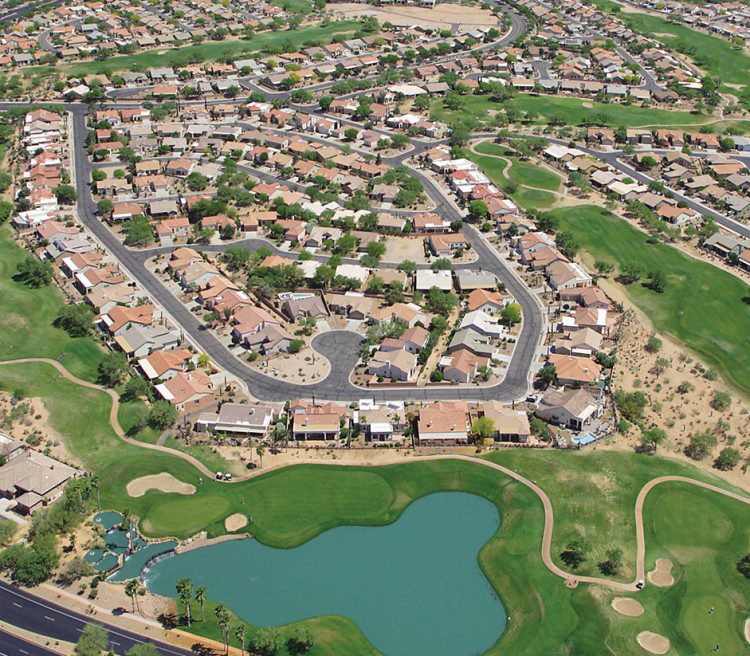A particularly active spring storm season left pockmarked roofs and tumbled fences throughout North Texas this year, including many in my master-planned community, thanks to an EF0 tornado that blew its way through the neighborhood (thankfully missing my house – this time). The process of repairs and replacements was as fickle as the tornado itself. Some homeowners received immediate or at least prompt approval from the community Homeowners’ Association (HOA) and its Architectural Review Committee (ARC), while others were forced to wait and wait and wait – which would be frustrating, even if this weren’t the wettest June in 13 years. In one case, a homeowner’s approval was inexplicably delayed so long, even though she was only looking to replace her damaged roof with the exact same roof, that she suffered leaks and damage to the interior of her home.

That’s one of the rubs of living in a community that is governed by an HOA: You need approval to do stuff to your house, even if that stuff is going to be an improvement over what it currently looks like. It’s not the only potential downside, but there are also plenty of advantages associated with an HOA. And with more than 40 million U.S. households “or 53% of the owner-occupied households in the America” living with an HOA, according to HOA-USA – a number that’s on the rise with new construction, of which more than 60% have an HOA – it’s something you might have to deal with. Get to know the pros and cons so there won’t be any surprises.
Pro: An HOA protects your investment. “HOA rules and regulations help ensure homeowners keep their homes well maintained and in compliance with overall appearance standards,” said Signature Homes. “Combined with proper care of amenities and common areas, the value of your home is more protected than one that does not have HOA oversight.”
Con: Limits your creativity and individuality. HOAs may offer limited options when it comes to updates. Older neighborhoods may have a small color palette available to owners and may be reluctant to expand it to current trends.
Pro: You won’t have to deal with neighbors painting their house pink or letting their grass grow to armpit height. “Homes within an HOA must meet the standards set by the association or face a fine, so you’re less likely to see unkempt lawns, peeling paint or a garishly painted house,” said Realtor.com. “Some HOAs have a design review board with the power to approve any changes to your home’s exterior.”
Con: Those restrictions can be Confining. An HOA demands that you ask permission before making any changes to your home – even if you’re just talking about staining your fence the very same color. Depending on how finicky your HOA is, you might also get fined because your landscaper took the week off or because the basketball net in your driveway is torn (true story).
Pro: File this under the umbrella of “protecting your investment.” Many HOAs have stipulations about how many cars, or what type, can be parked on your property, or even where they can be parked. That can help ensure that the neighbor down the street doesn’t turn his lawn into an auto body shop with multiple non-functioning cars up on blocks.
Con: Looking to park your RV or boat in your driveway? An HOA may nix that idea. Be sure you check ahead of time to make sure this is allowed.
Pro: An HOA decision may not be final. Get a rejection from the HOA on your submitted request to make changes to your landscaping? You can always appeal and state your case.
Con: Deciding to “ask for forgiveness instead of permission” rarely goes well, so, if you decide to go ahead with changes despite not receiving an approval from the HOA, beware: You might be fined.
Pro: Some HOAs take care of things like your front-yard landscaping and trash removal, which means you don’t have to pay for it or worry about it.
Con: That also may mean strict restrictions about what you can and can’t plant in your front yard. You may have to reconsider those rose bushes.
Pro: You might not have to put in a pool because there’s one in the community that you’re helping to pay for through your HOA dues, but don’t have to maintain.
Con: When the pool needs to be redone, it’ll be you and all your neighbors that are on the hook to pay for it – even if you never use it.
Pro: A pool is just the beginning. Planned communities with an HOA can have golf courses, tennis courts, clubhouses, playgrounds, and even private lakes for fishing and recreation.
Con: The more amenities you have, the more you’re likely to pay in HOA dues. In a large masterplan with a couple of pools, a playground, and a tennis court, you can pay as little as $50 per month. The more homes that are added, the more the overall cost is spread out. A more “typical range” is $200–400 per month, said Investopedia, adding that, “The more upscale the building and the more amenities it has, the higher the homeowners’ association fees are likely to be.” In some condos, the fees may be higher if parking and security are considerations, and, especially, in a luxury building with amenities including a fitness center and concierge. “Hollywood’s fancy Sierra Towers condo building, which is filled to the brim with amenities like 24-hour concierge service and valet parking. They charge residents of a 3,400-square-foot condo about $4,000 per month in HOA fees,” said Realtor.com.
Pro: You’ve got a built-in mediator. “Involved in a tiff with your neighbor over that big oak tree that’s losing limbs? You can settle some confrontations with your neighbors by taking your grievances to the HOA’s board or management company,” said RISMedia.
Con: Maybe you’re the type that wants to “handle” grievances in your own way?
Pro: Some HOAs allow you to pay monthly, quarterly, or annually.
Con: Falling behind on HOA dues can lead to foreclosure. “This is another reason you’ll want to make sure those HOA fees are in your budget,” said Credit.com. “An HOA can move to foreclose on your property if you fail to pay its dues and/or associated late fees. Laws can vary by state. A few, for instance, place limits on when an HOA can move to foreclose. So if you’ve fallen behind on payments, you may want to consult a local attorney about your best recourse.”
Pro: Part of what you’ll pay to the HOA every month goes to a reserve fund, which can be used for neighborhood repairs and emergency needs.
Con: The reserves may not be enough to cover large expenses. “In addition to monthly fees, if a major expense such as a new roof or a new elevator comes up and there aren’t enough funds in the HOA’s reserves to pay for it, the association may charge an extra assessment that can run into thousands of dollars,” said Investopedia.
Position Realty
Office: 480-213-5251



